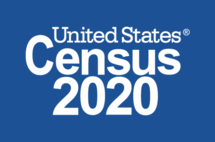Latin People News LPN: Census Bureau Releases New Content on 2020Census.g...: The Census Bureau launched an update to the 2020 website that includes content in 59 languages, language assistance guides, videos and more...
google.com, pub-1335146159728384, DIRECT, f08c47fec0942fa0
| The Census Bureau launched an update to the 2020 website that includes content in 59 languages, language assistance guides, videos and more. |
|
Census Bureau Releases New Content on 2020Census.gov in 59 LanguagesJAN. 13, 2020 – The U.S. Census Bureau recently launched an update to 2020census.gov that includes content in 59 languages, including language assistance guides and videos that explain how to complete the 2020 Census questionnaire online, by phone, or by mail when it becomes available in mid-March. People can respond to the census online and by phone in 13 languages. The expansive site includes in-depth information in both English and Spanish. Here are some highlights: - Census information and supporting materials in 59 languages
- A social hub that contains digital assets that allow partners and other community leaders to share content on their own digital channels
- New recruitment material has been added to aid efforts to attract more applicants for census taker and other temporary jobs to help conduct the 2020 Census
- A list of national partners and supporters who have committed to reaching out to their members, employees, volunteers, customers and stakeholders to let them know that completing the 2020 Census is easy, safe and important
- A sample questionnaire that allows website visitors to see questions the Census Bureau will ask on the 2020 Census
- A quiz called “Who Counts On Your Census Form?” that explains who should be counted on the questionnaire and will provide information about any special circumstances to consider when responding
- A toolkit to guide state and local officials and community leaders as they begin to plan for 2020 Census Response Rate Challenges in their respective towns, cities, and states
- New content for individuals living in Puerto Rico on how to respond to the 2020 Census
|
|
 Help us spread the word about the 2020 Census. Share this on social media or forward it to a friend. |
About the 2020 CensusThe goal of the 2020 Census is to count everyone who lives in the United States. It is conducted every 10 years and is required by the U.S. Constitution. Census responses determine congressional representation in the states and inform how billions of dollars in federal funds are distributed to states and local communities every year for critical public services and infrastructure, including health clinics, schools, roads and emergency services. For media inquiries or interviews: Please contact the Public Information Office at pio@census.gov or call 301-763-3030 to request an interview. |
|
|











.jpg)

.jpg)
